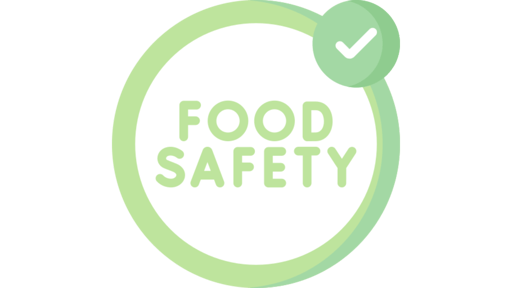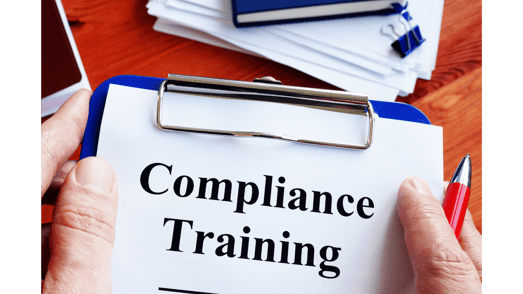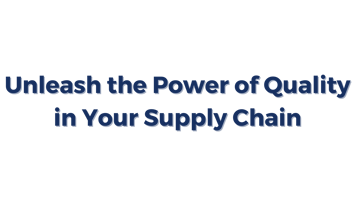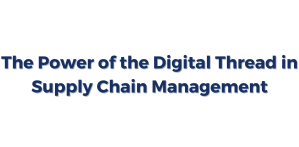Quality is the cornerstone of customer satisfaction and loyalty. Supply chain quality management is...
Latest FDA Compliance Updates in 2023
In the ever-evolving landscape of health and safety regulations, staying up-to-date with the latest FDA compliance updates is crucial. Not only do these updates impact the industry, but they also play a vital role in protecting public health. Ready to dive into the world of FDA compliance in 2023? Let’s explore the most recent changes, from regulatory actions to digital health regulations, and learn how these updates affect the healthcare landscape.
Short Summary
-
The FDA is dedicated to protecting public health through compliance updates and regulatory actions.
-
The agency coordinates recalls, enforces initiatives, monitors food safety & investigates outbreaks in order to protect consumers from potential risks.
-
It also provides guidance on industry regulations and works with other agencies to prevent misinformation related to digital health technologies.
FDA Compliance Updates and Regulatory Actions

The FDA’s primary mission is to ensure public safety by regulating food, pharmaceuticals, and medical devices in the U.S. In 2023, the FDA has been hard at work, taking swift action to remove products that pose a risk to public health from the marketplace. From issuing debarments and disqualifications to requesting seizures of adulterated and misbranded products, the FDA leaves no stone unturned in its quest for compliance, showcasing the importance of the FDA’s role in protecting the public.
Collaborating with federal and state regulatory partners, the agency focuses on protecting human and animal health through regulatory actions and enforcement initiatives. These measures include ensuring sanitary conditions in the production of animal food, proper labeling, and the safety and efficacy of animal drugs, devices, and food additives.
Recent Press Releases
In 2023, the FDA has issued several press releases to keep the public informed on their latest actions. One such announcement was the approval of a second over-the-counter naloxone nasal spray product, aimed at reducing opioid overdose fatalities. Another recent initiative is a retailer inspection blitz, targeting illegal sales of disposable e-cigarettes, which are often sold to minors.
The FDA’s commitment to transparency and public safety is evident in these press releases. With SSL encryption on their official website, the FDA ensures that the information is secure and accessible to the public, who can stay updated on the latest compliance news and initiatives.
Product Recalls
FDA recalls are designed to withdraw a product from circulation, protecting the public from potential risks associated with the product. There are three types of FDA recalls: voluntary, initiated by the firm, requested, initiated by the FDA, and ordered, initiated by the FDA under its mandatory recall authority.
Press releases regarding recalls serve as an important tool to inform the public of any recalls that may pose a substantial or serious risk to consumers or users of the product. By staying informed about FDA recalls and regulatory actions, consumers and industry professionals can ensure the safety and compliance of products in the market.
Enforcement Initiatives
One of the key branches of the FDA’s enforcement efforts is the Office of Criminal Investigation. This office is responsible for conducting criminal investigations of illegal activities involving FDA-regulated products, apprehending the perpetrators, and presenting them to the U.S. Department of Justice for prosecution.
The Food and Drug Administration has the power to request an injunction through the U.S. courts. This can be an effective way to resolve situations that pose a risk to safety or welfare. The Department of Justice is committed to preventing violations of the law, just as the u.s. flag symbolizes the unity and strength of the nation. This includes barring products which don’t meet regulations from entering interstate commerce, as well as rectifying any conditions leading to the violation. Warning letters are another tool used by the FDA to encourage timely voluntary corrective action, with firms given 15 business days to provide a plan to rectify the noted violations. For more information, visit the FDA’s official website.
Food Safety and Outbreak Monitoring

When it comes to food safety, the FDA plays a critical role in monitoring and investigating foodborne illness outbreaks. Working closely with public health partners such as the CDC and FSIS, the FDA collects data, conducts investigations to identify the source of the outbreak, and implements measures to control and prevent further spread of the illness.
These organizations together ensure that food safety regulations are followed, protecting consumers from potential health risks associated with contaminated food products. By staying vigilant and responsive, the FDA and its partners help maintain a safe food supply, ultimately safeguarding public health.
Foodborne Illness Outbreaks
Foodborne illness outbreaks occur when two or more individuals become ill from ingesting the same contaminated food or beverage. These outbreaks are typically attributed to pathogens such as Salmonella, E. coli, Listeria, or Campylobacter. To address these outbreaks, the FDA collaborates with other federal, state, and local agencies to investigate, identify the source of contamination, and take steps to prevent future outbreaks.
A few examples of past foodborne illness outbreaks include the 2018 E. coli outbreak linked to romaine lettuce, the 2019 Salmonella outbreak linked to ground beef, and the 2020 Listeria outbreak linked to frozen vegetables. These cases highlight the importance of the FDA’s role in detecting and addressing foodborne illness outbreaks, ultimately protecting public health.
Advisories and Alerts
The FDA issues advisories and alerts related to food safety, drug recalls, public health concerns, and consumer safety. These alerts serve to safeguard public health by providing timely information regarding potential risks and hazards.
Examples of advisories and alerts issued by the FDA include warnings about contaminated food products, recalls of drugs or medical devices, and public health alerts about emerging infectious diseases. By staying informed about FDA advisories and alerts, consumers and healthcare professionals alike can take necessary precautions and make informed decisions to protect their health.
Compliance Programs and Industry Guidance

FDA Compliance Programs provide guidance to FDA personnel for assessing adherence to the FD&C Act and other laws administered by the FDA. Inspections are conducted to evaluate a firm’s adherence to relevant laws and regulations, with potential violations noted on an FDA Form 483 issued to firm management.
The FDA also offers resources such as the Electronic Reading Room, which provides examples of recently issued FDA Form 483s, and the Inspection Classification Database Search, allowing users to search for inspections of FDA-inspected firms and their classifications. These resources help ensure transparency and promote compliance within the industry.
Evaluating Compliance
Assessing compliance involves several steps, including establishing benchmarks and KPIs, monitoring compliance metrics, undertaking audits, and conducting compliance program evaluations. The benchmarks and KPIs used to assess compliance depend on the industry and relevant regulations, with common examples including compliance rate, compliance cost, compliance time, and compliance accuracy.
Various methods can be employed for tracking compliance metrics, such as manual tracking, automated tracking systems, and third-party software. Conducting audits and compliance program reviews helps ascertain an organization’s adherence to applicable regulations and identify any areas of non-compliance or potential improvement.
Voluntary Corrective Action
Voluntary corrective action is a set of activities taken by a company in response to a notification from the FDA. These actions may include on-site corrections at the time of inspection, voluntary destruction of the product, and other corrective measures implemented voluntarily by the company.
Taking voluntary corrective action can be advantageous to companies, as it can help them avoid expensive fines and penalties, enhance their standing with the FDA and the public, and facilitate the prompt resolution of any arising issues while ensuring compliance with FDA regulations.
Inspection and Enforcement
The FDA performs inspections of regulated facilities to ensure adherence to relevant laws and regulations. These inspections involve thorough on-site examinations of facilities and can include sample analyses of regulated products. Additionally, the FDA reviews imported products offered for entry into the market.
Enforcement actions may be implemented in accordance with the findings of these inspections. By conducting inspections and enforcing compliance, the FDA plays a crucial role in maintaining the safety and efficacy of products in the market, ultimately safeguarding public health.
Drug and Medical Device Compliance

Drug and Medical Device Compliance is the process of adhering to regulations and guidelines set by regulatory authorities, such as the FDA, to ensure the safety, efficacy, and quality of pharmaceutical drugs and medical devices. Compliance with these regulations is essential to protect public health and ensure the effectiveness of drugs and medical devices on the market.
This involves implementing processes and procedures to meet regulatory requirements, conducting regular audits and inspections, maintaining proper documentation, and addressing any non-compliance issues. By understanding and adhering to drug and medical device compliance, industry professionals can play their part in maintaining the highest standards of safety and efficacy.
Drug Approval and Monitoring
The drug approval and monitoring process involves several steps. Initially, the drug’s sponsor submits an application to the FDA for review. Subsequently, the FDA thoroughly examines all the submitted data related to the drug and makes a decision to approve or not approve the drug. This review process includes pre-clinical trials, clinical trials, and a new drug application review.
After the drug is approved, post-marketing monitoring occurs, wherein the company is obligated to submit periodic safety updates to the FDA. Throughout these stages, the FDA rigorously examines the safety and efficacy of the drug, ensuring that it meets the necessary standards before reaching the market.
This comprehensive process highlights the importance of compliance in the drug approval and monitoring process, ultimately protecting public health.
Medical Device Regulation
Medical device regulation consists of a comprehensive set of rules and requirements that ensure the safety, effectiveness, and quality of medical devices. These regulations protect patients and users by overseeing the development, manufacturing, marketing, and use of medical devices.
In the United States, the FDA regulates medical devices, encompassing premarket approval, postmarket surveillance, and other stipulations. The comprehensive nature of these regulations emphasizes the importance of medical device compliance in maintaining patient safety and ensuring the effectiveness of devices in the market.
Digital Health and Misinformation Prevention

Digital Health is the utilization of digital technologies to enhance healthcare delivery and patient outcomes. Misinformation Prevention in the context of Digital Health is the action taken to prevent the dissemination of false or inaccurate health information. The FDA has issued regulations related to digital health, such as the use of mobile medical applications, software as a medical device, and the use of artificial intelligence in healthcare.
To prevent the spread of misinformation, the FDA has launched a public education campaign, established a Misinformation Prevention Task Force, and developed a Misinformation Prevention Toolkit. These efforts are vital in promoting accurate and reliable health information, ultimately improving healthcare decision-making and patient outcomes.
Digital Health Regulations
Digital health regulations are a set of guidelines that oversee the utilization of digital health technologies, such as mobile health applications, telemedicine, and wearable devices. These regulations encompass a broad range of topics, including data privacy, security, and interoperability; patient safety; and clinical efficacy.
The compliance requirements mandated for digital health regulations involve the submission of premarket applications, postmarket surveillance, and periodic reporting. Enforcement initiatives for digital health regulations include warning letters, civil money penalties, and product recalls. These regulations and enforcement initiatives play a crucial role in ensuring the safe and effective use of digital health technologies in healthcare.
Misinformation Prevention Initiatives
The FDA has implemented a variety of measures to counteract the dissemination of misinformation, such as monitoring and evaluating digital health information, promoting accurate information, and enforcing regulations. The FDA employs various techniques to monitor and evaluate digital health information, such as analyzing websites, social media posts, and other online sources.
By promoting accurate information and enforcing regulations, the FDA plays a vital role in preventing the spread of misinformation in the digital health sphere. These efforts not only protect public health, but also contribute to the overall improvement of healthcare delivery and patient outcomes.
Summary
In conclusion, the FDA’s role in ensuring compliance across various industries is critical to protecting public health. From food safety to drug and medical device compliance, the FDA’s stringent regulations and enforcement initiatives help maintain a safe and reliable healthcare landscape. As digital health continues to evolve, FDA’s efforts in preventing misinformation become increasingly important. By staying informed and adhering to the latest FDA compliance updates, industry professionals can contribute to an environment of safety, efficacy, and trust in healthcare.
Frequently Asked Questions
How often are FDA regulations updated?
FDA regulations are updated twice a year via the Unified Agenda. More information is available on the Office of Management and Budget website.
What has the FDA-approved recently?
The FDA has recently approved novel drugs for use in 2023.
Where can I find FDA 483 reports?
Form FDA 483s can be requested through the FDA’s Freedom of Information Act Office and, once made public, are available in ORA’s Electronic Reading Room.
Note that obtaining a 483 is often expensive and time-consuming, as the FDA must remove/redact any confidential material before making it available.
What types of FDA recalls exist?
The FDA recalls are divided into three categories: voluntary, requested, and ordered. Each of these categories is initiated by either the firm or the FDA.
How does the FDA monitor and evaluate digital health information?
The FDA uses comprehensive analysis of online sources, such as websites and social media posts, to monitor and evaluate digital health information.
This includes looking for potential health risks, evaluating the accuracy of health claims, and identifying trends in consumer behavior.
%20v2.png?width=200&height=80&name=AMNI%20Logo%20(Main)%20v2.png)



